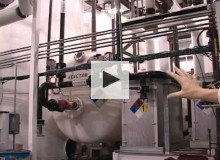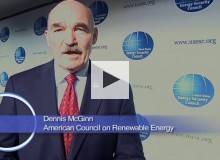Biofuels
Algae! Trash! Poop! Organisms convert energy from the sun into energy for life. PF Members offer their solutions on how to turn that biomass into an energy source for mankind.
By Katrina Schwartz, KQED Climate Watch
The newest biofuel making a splash is seaweed.
National Science Foundation
Researchers have re-engineered an anaerobic bacterium known as clostridia to prevent spore formation, a change that improves the bacteria's productivity in making biofuels.
The University of Delaware engineers demonstrated the feasibility of using... Read More
Students from Clemson's EPA P3 team have developed a device that will generate power from organic material found on the forest floor.
The George Washington University
Maryland's new biodiesel plant is turning used vegetable oil into biofuel. Can we power our cars from the fat from making our food?
Former Admiral and current president of the American Council on Renewable Energy Dennis McGinn discusses the power of choice in overcoming oil dependency.
Are flex-fuel cars the future? Former CIA Director James Woolsey proposes that we "do like the Brazilians do." See why this idea may transform the vehicle fleet.
National Science Foundation
Mixed prairie grasses, grown on degraded land, may be a better source of biofuel than corn ethanol or soybean biodiesel. The study, led by David Tilman at the University of Minnesota, showed that fuel made from prairie grass yields 51 percent more... Read More
EcoTech Fuels, LLC
EcoTech Fuels enters into a joint venture with the Native Self-Sufficiency Center of the St. Regis Mohawk Tribe (New York) that will convert local waste materials into advanced synfuels -- AND provide cash for Mohawk youth programs.
Cities can reduce greenhouse gas emissions and cultivate a new fuel source by managing methane emissions from landfills. In this video, Lawson Oates, Director of Toronto’s Environment Office, talks about the opportunities to be found in waste... Read More







